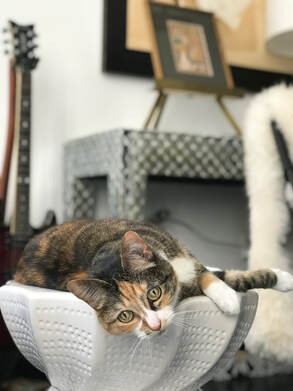1. Know Your Home’s Hideouts
If you’ve ever noticed how much cats love it when you open a new package from the mail and leave the empty box hanging around, you know that they are extremely curious about small spaces to crawl into. Therefore, it’s important for your kitty’s safety to inspect your home for any areas where they may seek shelter, only to be in harm’s way.
Never start the washer or dryer without checking for your kitten in its recesses—and double-check the fridge before you close the door. Make sure that you see your kitten is in a safe place before leaving the house to make sure it’s not closed in a drawer or another unsafe spot.
2. Avoid Food with Fillers
An unseen hazard, and a potentially long-term one, that is all too common in cat owners’ households is cheap food with fillers and by-products that offer little nutrition (not to mention, these foods can sometimes cause allergy symptoms in pets). Some of these foods may even contain toxins and heavy metals.
Read cat food labels carefully to ensure that your kitten gets plenty of protein and little to none of “empty” (or even harmful) calories from ingredients like corn gluten, corn syrup, and MSG. This will also help protect your kitten from diseases later in life, such as kidney disease.
3. Eliminate Things that Dangle
Anything that dangles is a potential cat toy and a possible hazard to your kitten. Examples of “danglers” include drawcords for window blinds and electrical cords. Not only do you not want your kitten to be strangled, but he or she could chew on a cord that’s plugged in, pull the object down on top of them, or choke on partially chewed pieces. According to House Method, make sure all wires, electrical outlets, and other safety hazards are secure or hidden to protect your kitten.
4. Remove Poisonous Plants
If you enjoy the organic decor and other benefits of indoor plants, check to see if you have any poisonous houseplants that your kitty might think are a snack to hold them over until you get home. It’s best to remove these plants from your home altogether rather than try to find a safe place for them in your home. Your kitten will undoubtedly find a way to get to them—don’t underestimate their determination or ingenuity when something catches their attention.
Adding a new member to the family is an exciting time, but it’s important to plan ahead and do everything you can to “cat-proof” your home before your furry friends ends up in trouble. Take a look at the tips above and create a space that allows both humans and pets alike to thrive.
This article was written by our friend Kay Carter.


 RSS Feed
RSS Feed

